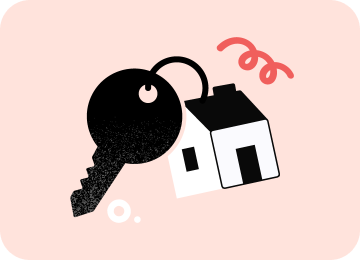Homeowners Insurance
- 1
- Basic Info
- 2
- Get a Quote

Homeowners Insurance
- Affordable Prices
- Trusted Partners
- Comprehensive Coverage
- Bilingual Customer Service
While not legally mandatory, most lenders insist on homeowners insurance. It offers dependable protection for you, your property, and belongings, mitigating the impact of unforeseen events like theft, fire, severe weather, or personal injury, thereby easing financial burdens.
Learn More
Homeowners
Insurance
Homeowners insurance offers dependable protection for you, your property and belongings, mitigating the impact of unforeseen events such as theft, fire, severe weather, or personal injury and thus easing financial burdens.

-
Affordable Prices
Tigerless customizes affordable home insurance with comprehensive coverage, ensuring peace of mind and cost savings aligned with your requirements.
-
Trusted Partners
Tigerless collaborates with several well-known U.S. insurance companies to provide high-quality and trustworthy service/coverage.


-
Comprehensive Coverage
Homeowners insurance can protect against various types of damage to your home and property caused by natural disasters, theft, and more.
-
Bilingual Customer Service
Our bilingual service in Chinese and English provides transparent information, bridging any language gaps for confident product purchases and holistic support no matter what.

Frequently Asked Questions
Homes are among our most valuable assets, making homeowners insurance crucial protection against unforeseen disasters. Insurers provide compensation based on the policy, and coverage extends beyond merely protecting the home's structure from natural disasters (e.g., fires and storms) to also cover personal belongings such as clothing, furniture, and appliances. This financial security also includes emergency repairs, reconstruction assistance, and coverage for living expenses during the rebuilding process.
Homeowners insurance categorizes the approach utilized to cover potential risks into two buckets: “named peril” and “open peril.
Named Peril: Coverage is limited to specific situations listed in the policy and therefore offers narrower coverage at a lower cost.
Open Peril: Covers everything other than incidents explicitly excluded in the policy—resulting in broader coverage that comes at a higher cost.
Homeowners insurance in the U.S. typically consists of two main sections, per the following:
Section I: Dwelling Coverage; Other Structures Coverage; Personal Property Coverage; Loss of Use Coverage
Section II: Personal Liability Coverage; Medical Payments to Others Coverage
Homeowners insurance in the U.S. typically does not extend to the following situations: Ordinance or Law; Earth Movement (Earthquakes); Water Damage; Power Failure; Neglect; Intentional Loss; War; Nuclear Hazard; Government Action.
Section II, specifically, typically excludes Motor Vehicle Liability, Watercraft Liability, Aircraft Liability, and Hovercraft Liability.
Typically, if you pay less than 20% of the home's appraised value and use a mortgage, the lending company will require you to buy homeowners or hazard insurance prior to the transfer of ownership—as a small down payment is considered a higher-risk mortgage, and lenders want to protect their investment in case of property damage or loss.
① Actual Cash Value: Pays the property's current value, accounting for depreciation.
② Replacement Cost Value: Pays based on the property's original value at the time of the claim, without factoring in depreciation (typically used for the primary structure of a home).
③ Extended Replacement Cost: Pays based on the current market cost to rebuild the property at the time of the claim.
① Understand your homeowners insurance policy terms, including insurer requirements and limitations.
② Compare quotes from different insurers so you can make an informed decision.
③ Choose the right coverage type, which can impact insurance costs.
④ Consider coverage areas, as high-risk zones may affect eligibility.
⑤ Determine sufficient coverage to avoid exceeding policy limits during a disaster.
⑥ Establish an affordable homeowners insurance budget while factoring in deductible amounts.